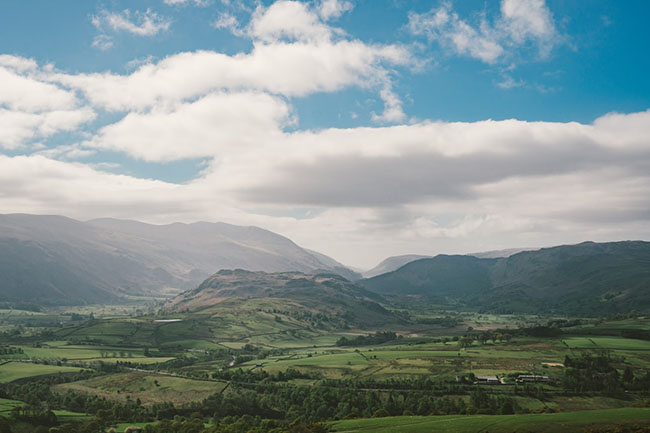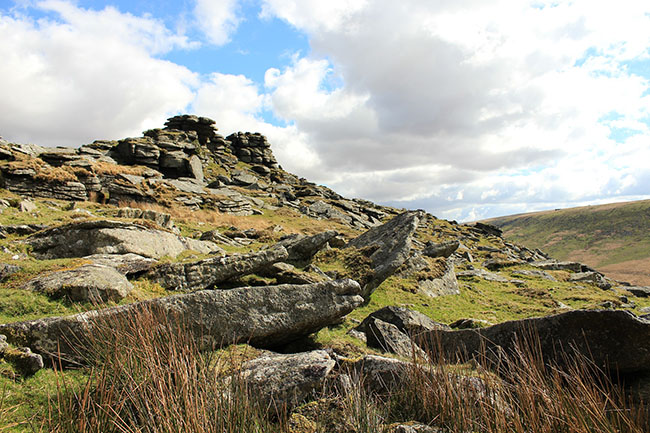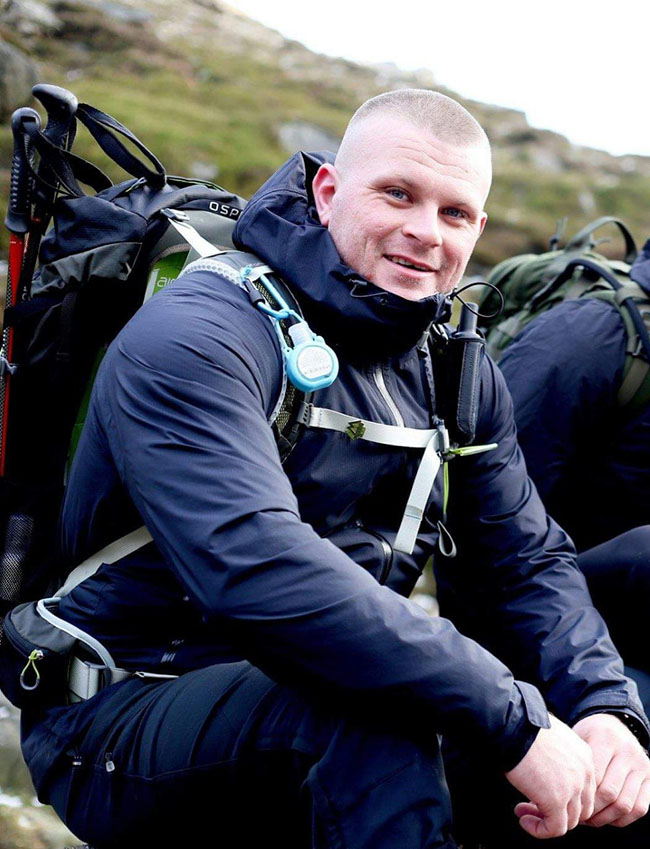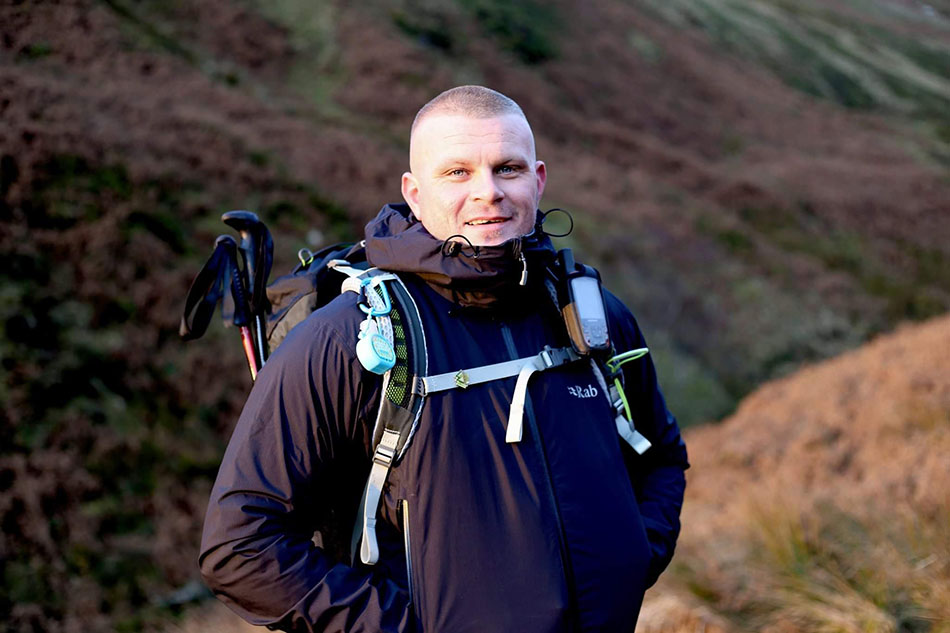From hiking groups to self-isolating bird clubs, online communities are getting people offline and outdoors. How are these nature-based online spaces getting people outdoors and transforming the mental health of their members?
On the 70-mile drive to the Lake District, Mark Ellison had a repeated thought: ‘I hope this gets cancelled.’
The 34-year-old scaffolder from Manchester was about to meet people he had never interacted with beyond a digital ‘like’ or private message on Facebook. Having suffered from anxiety and depression for years, and being formally diagnosed in 2016, it was something he had never imagined doing.
“With my anxiety, one of the things was that I didn’t really like meeting new people. I always felt like they judged me and didn’t like me,” he says.
His relationship with walking began three years before when he bought his first pair of walking boots and took himself to Snowdon. The mountains have always given Mark solace. “It’s dead peaceful, you can hear the birds singing,” he says. “It’s dead quiet, you’ve got the water trickling down. It just feels so right.”
Walking has been proven to boost self-esteem, and spending time outdoors can reduce the risk of depression. And according to a study in Scientific Reports, a weekly two-hour exposure to nature significantly boosts health and wellbeing.

He had already enjoyed the benefits of walking, but Mark was ready to share the experience.
“I always wanted to meet new people who shared the same interests as me because a lot of my friends don’t,” he says.
Unable to find likeminded people in his existing social group, he went online. After stumbling across the Facebook group ‘Mountains for the Mind’, he started sharing his struggles with mental health. The posts were met with scores of likes, comments and private messages, giving Mark the boost to step out of his comfort zone – something he would not have done in his offline world. From being terrified of meeting new people, he was now asking if people he had never met wanted to join him for an activity he’d done for so long by himself, and had given him so much.
The outdoors/mental health charity Blackdog Outdoors organised the walk for Mark. Waiting in the car park after arriving early, Mark sat and calmed himself down. His feelings were conflicting. “[I was] hoping loads would turn up but also hoping nobody would come,” he says.
But an hour into the foggy path up to Skiddaw’s 931-metre-summit on that first group walk last July, Mark relaxed. “I don’t see what all the worrying was about – it wasn’t as scary as I thought it was gonna be,” he says. It was like he’d known Ian for years, and Andrew was ‘dead nice’.

Since then, he has continued to meet new people through ‘Mountains for the Mind’. He’s been on four more organised group walks, has met over thirty people, and walks regularly with five of them.
The Facebook group that started it all for Mark, is part of a campaign of the same name launched in 2019 to urge people to get outside for their mental health, based on the body of the evidence for its benefits. It is run by outdoor magazine Trail and partnered with Mind, Blackdog Outdoors, BMC and various other companies and charities.
Trail editor Oli Reed says that while ‘Mountains for the Mind’ was originally born as an awareness campaign showing the benefits of getting outside for mental health, the Facebook group with over 11,400 members has transformed it into something much more.
“It’s grown into a big community of people who inspire each other and support each other with stories, photos and videos every day,” Reed says. “In some ways, it’s a support group for a lot of people.”
With over 3.8 billion active users worldwide, social media is often criticised for having a negative impact on mental health globally, such as one study from the University of Pittsburgh showing that use of multiple social media platforms is associated with symptoms of depression and anxiety.
While Reed says that social media has been great for what the campaign wants to achieve and has been an integral part of spreading the message, the reach that the internet has given them has come with its own challenges. At almost 11,000 members only 18 months after its creation, Reed says that the growth of the group has been a steep learning curve when it comes to dealing with mental health.
“It’s a very complex subject matter and everyone’s experience and history is different,” he says. “We were terrified of getting the terminology wrong.”

Mind, the mental health charity, warns on their website that social media sites often have little moderation, making triggering/upsetting content very possible. Online communities have turned dark in the past – one eating disorder recovery group exposed 21,000 people to a post about diet pills.
“That was probably the biggest challenge,” Oli says, referring to navigating mental health online and also on the group walks. “There’s a lot of people who come on these walks who suffer from anxiety and even just being out in a crowd for them is a huge deal. So, it was making sure we understand all of that and having people there to support and everything.”
To ensure the group was a positive space, the campaign worked with mental health charity Mind, and have mental health first-aiders moderating the Facebook group. They are also partnered with mental health charity Blackdog Outdoors.
“I see people in that group who have become friends for life.“
Oli Reed, Trail editor talking about Mountains for the Mind
And online communities created to help people with their mental health can positively affect users. According to the UK mental health charity, Mind, they can connect people with those who have similar mental health experiences. And one Harvard study found that routine social media use – such as using social media as part of an everyday routine – is positively associated with social well-being, positive mental health and self-related health.
What’s more, these online communities can positively impact its users even if they do not take these interactions offline in the way that Mark often does. A study by the University of Utah found that Reddit users on the r/depression thread used increasingly positive language over time, suggesting that it caused a ‘positive emotion change’ in users.
This was the case for Jean Felton, who is a retired office administrator and has been shielding with her husband since mid-March on the edge of Dartmoor. While she can’t get outside and meet other people through these groups, these online communities have still been essential for her maintaining her mental health.
“We’re stuck here on our own, not able to meet like-minded people in our everyday lives like we used to before COVID,” she says. “One of the things that has really, really helped me, is social media.”
‘Dartmoor 365’ allows her to revisit the feelings of being on the moor prior to COVID-19. Chris Packham’s ‘The Self Isolating Bird Club’ lets her see people all over the country going places she’s no longer able to visit due to her limited mobility. Jean says that she’s enjoyed looking at people’s photos even if she’s never been to the place captured herself – a study from Vrije University Medical Centre in the Netherlands showed that even viewing photos of nature can have a positive impact on the brain.

“Social media has been amazing,” she says, “I know some people think it’s awful, but you have to throw out the bad bits, brush past them.”
Despite the challenges and pressure to get things right, Reed is pleased with what ‘Mountains for the Mind’ has become. “I can honestly say that of all the things I’ve ever worked on, this is the only thing where we’ve had overwhelmingly positive feedback,” he says.
The group has certainly had a positive effect on Mark, letting him speak out about his mental health struggles, inspire other people and make that group of like-minded friends he did not have offline.
“I’ve now got friends who share the same passion as me, and I’m also going to be doing things that I would have never done before or had the confidence to do before.”

In a few weeks, he is going on his first ever camp, and next year he’ll be doing his first walk abroad to Everest basecamp.
“If it wasn’t for that group, I can guarantee you I wouldn’t be meeting all these new people,” he says. “I would probably still be waiting on my friends to tell me a day when they can go out walking.”
